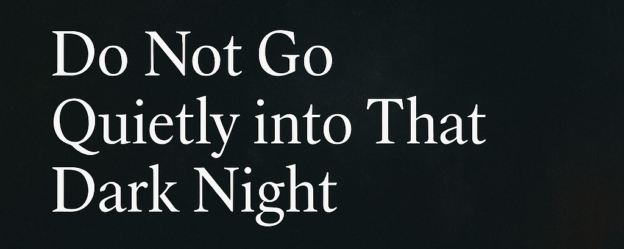A quiet manifesto for memory, resistance, and the voices that refuse to vanish. From whispered warnings to machine-read prophecies, this piece explores how songs like “Apes Ma”, “Fitter Happier”, “Trans Am”, and “Can’t Put Your Arms Around a Memory” carry defiance through static, grief through silence, and presence through time.
In Two Sides of the Same Coin, I explored the strange, haunting resonance of two songs, Captain Beefheart’s “Apes Ma” and Radiohead’s “Fitter Happier”. They whisper from opposite ends of time, but they share a similar frequency, one that bypasses logic and melody and speaks directly to something older, quieter, more unnerving. These songs are post-language, post-narrative, and post-human fragments. They’re residues, signals, half-formed memories on the other side of meaning.
In The Veil, the Soul Mirror, and Reflective Chrome Ghosts, I followed that frequency into the space memory occupies, how it persists, how the dead remain, and how songs remember for us. There was grief in that piece, yes. But also continuity. Reverence. A quiet acknowledgement that even what seems lost may still be moving through us.
Contents
This Is Not Surrender
But I want to be clear: this is not surrender. It is not a resignation to collapse or erasure. It’s something quieter, something more enduring. This is resistance, however faint. Not resistance as spectacle, but as insistence. As the stubborn persistence of a whisper in a world that prefers the bluntness of noise. The refusal to be silenced doesn’t always shout; it can breathe softly and still remain utterly defiant. Defiance doesn’t always march. Sometimes, it kneels in silence, eyes open.
The Question at the Gate: “Oh Death, Where Is Thy Sting?”
Rev. M. Gates wasn’t being poetic when he asked, “Oh death, where is thy sting?” He was calling out death by name. He was confronting it, not as a metaphor, but as an adversary. That’s what these pieces of music do as well. They’re not resigned. They’re not ironic. Captain Beefheart’s breathless delivery in “Apes Ma” is not just an artistic gesture, it’s a spell cast from the ruins, a warning cloaked in decay. Radiohead’s flat, digital voice in “Fitter Happier” doesn’t mock; it predicts with ugly accuracy. These tracks are not there to comfort us, and they are not designed to help us forget. But neither do they collapse beneath the weight of despair. They stand. They hold. They testify.
The Dylan Thomas Imperative: “Do not go gentle into that good night“
Dylan Thomas gave us the imperative we return to when things start to dim: “Do not go gentle into that good night.” But rage, in this context, needn’t look like fire. It can take the form of quiet, unshakable attention. Rage can murmur. It can be a refusal hidden in a whisper. It can be a sentence scratched into the underside of a drawer. It can be a list read by a voice too robotic to understand what it’s saying. It can be a phrase in a half-forgotten language, a broken poem passed from one hand to another. Rage, when it persists, doesn’t always need to shout. It just needs to remain. And when it remains, it reminds us that we’re still human.
A Sacred Refusal: “People Who Died”
There is a holiness in not forgetting. A kind of sacredness in refusing to pretend we’ve moved on. To witness, to remember, to speak, these aren’t passive acts. They’re acts of resistance in an era that makes forgetting so easy. Some of us can’t let go, and maybe that’s not weakness at all. Maybe that’s the point. To hold on not just to the past, but to the thread that says: I was here. They were here. This mattered.
Jim Carroll’s “People Who Died” makes that refusal loud. It doesn’t mourn so much as proclaim. It names the dead not to romanticise them but to keep them in the world. The song rattles off each life lost like a litany, not sentimental, not even solemn, but defiant. It doesn’t tidy anything. It doesn’t resolve grief. It turns memory into momentum.
To name something, even if the naming doesn’t change the outcome, is still to stand in relationship to it. And that’s no small thing. Naming is how we say: you were real. You mattered. You’re still here.
Final Thought: The Signal Carries On
These songs, Apes Ma, Fitter Happier, Can’t Put Your Arms Around a Memory, and Trans Am, they don’t scream. They don’t resolve. They don’t offer closure or redemption. What they do is persist. They loop, they echo, they hum beneath the surface of things. They are the tracks that remain when everything else has finished playing.
And that is what we do, too. We write. We speak. We remember. We refuse to go quietly. Even if what we have left is only a whisper. Even if the last thing spinning is someone else’s song at the end of the world, still we choose to listen. Still, we choose to speak. Still, we choose to name.
This is not an elegy. This is what plays after the elegy ends. This is the voice that remains when everything else has gone quiet. The signal that says: I’m still here. I saw it. I named it. I remember.
And for their sake, I will not go gently.
